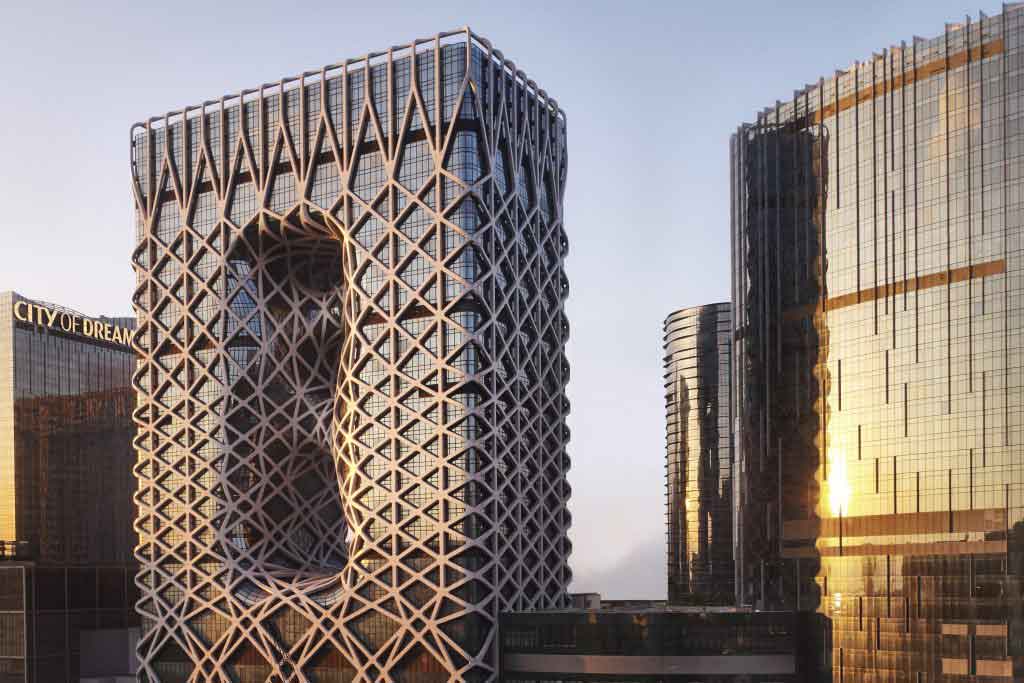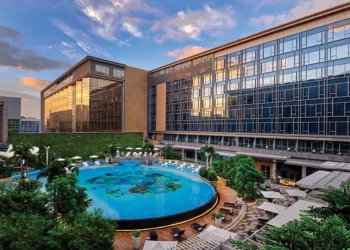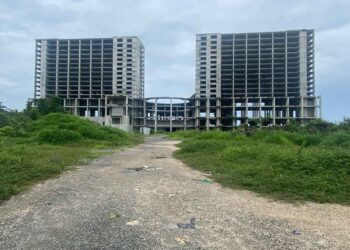Welcome to the tenth in a series of articles on the Macau gaming law IAG is publishing throughout the month of March and early April:
| Part | Date | Article |
|---|---|---|
| 1 | Wed 2 Mar | Here comes the extension … 26 June now seems impossible |
| 2 | Fri 4 Mar | Cross-shareholding provisions crossing the line? |
| 3 | Mon 7 Mar | Problematic consequences of the satellite purge |
| 4 | Wed 9 Mar | Does the chip cap need a rethink? |
| 5 | Fri 11 Mar | Reversion of gaming areas – a problem no one is talking about |
| 6 | Mon 14 Mar | Directors’ liability – changing centuries of corporate law? |
| 7 | Mon 16 Mar | Junkets, collaborators and concessionaire liability |
| 8 | Fri 25 Mar | Minimum income – a stealthy gaming tax rate hike? |
| 9 | Mon 28 Mar | National Security – a get out of jail free card for the government? |
| 10 | Fri 1 Apr | Confusion reigns over so-called “Managing Director” shareholding |
| 11 | Sun 3 Apr | 10-year concessions hamper investment in Macau |
| 12 | Wed 6 Apr | Too broad suitability checks will dilute their effectiveness |
| 13 | Thu 7 Apr | Provisions regarding other jurisdictions can cause legal conflict |
| 14 | Fri 8 Apr | And that’s a wrap – where to from here? |
One of the most crucial – and still unanswered – questions about the new Macau gaming law is the vexed issue of the so-called “Managing Director,” somewhat of a mysterious figure and certainly a much misunderstood one among Macau casino executives and commentators. Potentially billions of US dollars of value hangs on the way this part of the law is ultimately interpreted.
Article 19 of the Macau gaming law provides that management of concessionaires shall be delegated to a Managing Director who “shall be a permanent resident of the Macau SAR and shall hold at least 15% of the capital stock of the concessionaire.” Under the new draft gaming law this 15% is up from the previous amount of 10% which has prevailed for the past 20 years. The appointment or replacement of the Managing Director is subject to “the prior authorization of the Chief Executive” and the same suitability requirements as other directors, key employees, and 5% or more shareholders.
What, precisely, does the Managing Director do? No one knows. Yes, that’s right, no one actually knows. Apart from the article 19 provisions outlined above, the Managing Director never gets mentioned again in the Macau gaming law. The term “Managing Director” does not appear in article 2, the definitions article of the law. The term makes the briefest of appearances in the current concession contracts, but merely parroting article 19 of the law.
We can only surmise the role of the Managing Director based upon past practice. As far I have been able to ascertain over the past 20 years the Managing Director is simply a Macau permanent ID holder who (at least notionally) holds 10% (soon to be 15%) of the share capital of the concessionaire, so the concessionaires can dutifully say they satisfy the requirements of article 19 and their concession contracts. It seems to me the Managing Director is merely a Macau local the government can blame if something goes wrong.
Note the term “notionally” in the preceding paragraph. In many – if not all – cases, the concessionaires have established legal constructs such as nominee agreements or trust arrangements resulting in the Managing Director holding the 10% (soon to be 15%) shareholding in name only. Commentators like to refer to this as a “non-economic, non-voting interest” which is code for, “they don’t really own it and their ‘shares’ have no voting power”. Let’s call this what it is – a workaround.
The law is deafeningly silent as to whether these “non-economic, non-voting” interests are kosher or not. But the most important thing is that over the past 20 years the Macau government has been fully aware of the situation and has done nothing to challenge it – thus offering at least tacit acceptance.
Fast forward to today. The public consultation document released on 14 September 2021 mentioned increasing the then-prevailing 10% shareholding requirement. Much discussion occurred about whether the government wanted to also change the non-economic, non-voting nature of the Managing Directors’ shareholdings. The question was so burning that yours truly couldn’t help but ask in person during the final public consultation session, held on 25 October 2021. DICJ Subdirector Lio Chi Chong responded, expressing exasperation and seeming adamant that there would be no practical change in the application of the law.
“This 10% is already regulated in the current gaming law,” Subdirector Lio explained. “In the future, we want to increase the percentage to more than 10% so we are asking the public for their opinions on what percentage we should increase this to.
“Lots of people have been asking about this 10% and I want to emphasize that this rule is already regulated.” Lio’s comments heavily implied the non-economic interest and non-voting status quo will remain, and most of the commentariat have settled their opinions there – whether out of thoughtful analysis, or simply laziness, or something in between.
 But let me ask this. Why on earth, if there is no change to the non-economic interest status of the shareholding, has the government increased the minimum requirement from 10% to 15%? If the interest remains non-economic and non-voting, the increase is utterly meaningless. This has led to a significant minority wondering whether the government will ultimately force the shareholding to be one of economic interest, or, to use more plain language – be a “real” shareholding.
But let me ask this. Why on earth, if there is no change to the non-economic interest status of the shareholding, has the government increased the minimum requirement from 10% to 15%? If the interest remains non-economic and non-voting, the increase is utterly meaningless. This has led to a significant minority wondering whether the government will ultimately force the shareholding to be one of economic interest, or, to use more plain language – be a “real” shareholding.
And here’s another argument. Why would anyone in their right mind volunteer to be a Managing Director – with all the potential liability that might entail – for a non-economic interest of no real asset value?
Why does any of this matter? Plenty of reasons. Firstly, should an economic interest be enforced, this will likely trigger various change of control covenants from lenders, possibly jeopardizing financing arrangements – which are crucial in the current pandemic-decimated business environment.
Secondly, who in Macau is going to be able to afford the necessary acquisition? Under the new Macau gaming law, the minimum capitalization of concessionaires is MOP$5 billion (US$625 million). At a minimum 15% shareholding, we arrive at a shareholding value of MOP$750 million (US$94 million). So, do we need to find six Macau permanent residents with US$94 million apiece burning holes in their pockets?
But wait, there’s more. That number assumes a concessionaire value of US$625 million for each of the six. But truth be told, these concessionaires are worth way more than that. If the 15% Managing Director shareholdings are to be of true economic value, they need to be valued at close to the market cap of the listed entities. Why? Because for most of these companies, it is only the casino element which is cash flow positive, with all other parts of the IRs effectively being loss-leaders supporting the casino.
Let’s do some math. Last time I checked – which was five minutes ago – the market cap of the six concessionaires combined was a touch under US$60 billion. And by the way, that’s pretty much an all-time low number for the past five years. At 15% apiece, we’re looking at “real value” concessionaire Managing Director shareholdings around US$3.5 billion each for Sands and Galaxy, and around US$500 million for each of the other four. How are we going to find six Macau permanent residents with access to this kind of money? And on what basis are we going to decide which six lucky Macau residents get the golden ticket?
And before someone suggests gifting this 15%, or selling it at less than market value, that’s got to be against not only the fiduciary duty of board directors to the existing shareholders, but also stock exchange listing rules. Not to mention the class action lawsuit that would no doubt immediately be filed on behalf of existing shareholders.
What a minefield. How can it possibly be solved? Very simply indeed. The government could instantly and totally ameliorate the entire quagmire by simply making a statement on the record – the Managing Director shareholding need not be an economic one. The status quo remains, and all is well. And if this is not to be the case, and the shareholding needs to be an economic one, it is best to let the concessionaires know as quickly as possible, so they have the maximum time to plan their reponses to the change, and strive for the best final outcome they can.
Thus far, the question remains an open one.
The next article in this series will be published next week.
| Part | Date | Article |
|---|---|---|
| 1 | Wed 2 Mar | Here comes the extension … 26 June now seems impossible |
| 2 | Fri 4 Mar | Cross-shareholding provisions crossing the line? |
| 3 | Mon 7 Mar | Problematic consequences of the satellite purge |
| 4 | Wed 9 Mar | Does the chip cap need a rethink? |
| 5 | Fri 11 Mar | Reversion of gaming areas – a problem no one is talking about |
| 6 | Mon 14 Mar | Directors’ liability – changing centuries of corporate law? |
| 7 | Mon 16 Mar | Junkets, collaborators and concessionaire liability |
| 8 | Fri 25 Mar | Minimum income – a stealthy gaming tax rate hike? |
| 9 | Mon 28 Mar | National Security – a get out of jail free card for the government? |
| 10 | Fri 1 Apr | Confusion reigns over so-called “Managing Director” shareholding |
| 11 | Sun 3 Apr | 10-year concessions hamper investment in Macau |
| 12 | Wed 6 Apr | Too broad suitability checks will dilute their effectiveness |
| 13 | Thu 7 Apr | Provisions regarding other jurisdictions can cause legal conflict |
| 14 | Fri 8 Apr | And that’s a wrap – where to from here? |


































